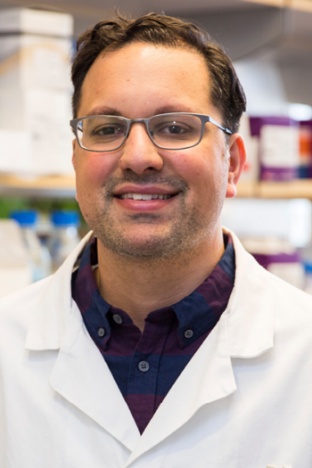Biography
Scott Soleimanpour, M.D. is an Associate Professor of Internal Medicine and Director for T1D Basic Research in the University of Michigan Caswell Diabetes Institute. Diagnosed with type 1 diabetes (T1D) in 1986, Dr. Soleimanpour is deeply invested in basic research focused on the genetic causes of T1D. Dr. Soleimanpour attended Kent State University and the Northeast Ohio Medical University as part of a combined B.S./M.D. program. During his pre-doctoral and post-doctoral research training, Dr. Soleimanpour completed diabetes research fellowships in the Vanderbilt University/NIDDK medical scholars program, the Howard Hughes Medical Institute-National Institutes of Health (HHMI-NIH) Research Scholars program, and in the William Osler Society of Fellows at the University of Pennsylvania. Among Dr. Soleimanpour’s key research contributions include studies focused on islet cell transplantation, mitochondrial quality control, and include recent studies focused on control of pancreatic beta cell and immune cell function by mitophagy. He has received awards and honors from the Juvenile Diabetes Research Foundation, American Diabetes Association, the American Society of Clinical Investigation, the Central Society for Clinical and Translational Research, the Alpha Omega Alpha National Medical Honors Society, and The Endocrine Society. The Soleimanpour Lab has pioneered the study of mitochondrial quality control in diabetes pathophysiology, and his lab continues to focus on how defects in the key mitophagy regulator and diabetes gene Clec16a regulates beta cell dysfunction in both type 1 and type 2 diabetes.
Research Interests
Our lab focuses on the molecular and genetic regulation of the mitochondrial life cycle, with a focus on mitophagy, a pathway to dispose of unhealthy or damaged mitochondria. Our studies also concentrate on novel genetic targets affecting the mitophagy pathway, which are also associated with diabetes in humans, through studies in cellular and mouse genetic model systems, as well as isolated human islets. Our goal is to discover how the dysregulation of mitochondrial respiration and mitophagy leads to diabetes pathogenesis, along with determining strategies to improve mitophagy to prevent or treat diabetes.




